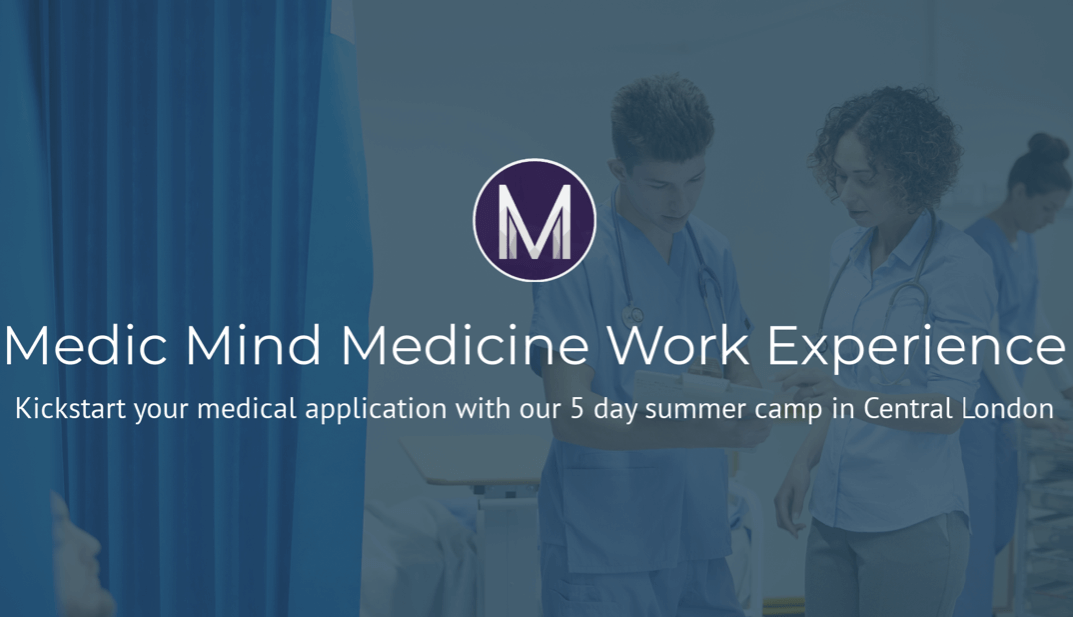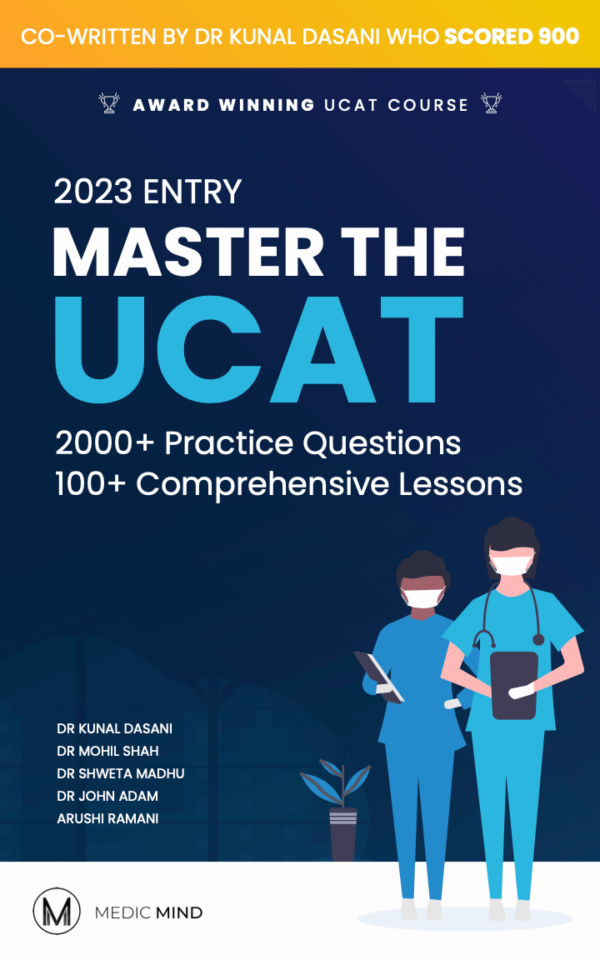Loading...

Year 12 Medical Work Experience: A Comprehensive Guide

Welcome to our comprehensive guide on Year 12 medical work experience, designed to help aspiring young doctors navigate this crucial stage of their medical journey. Whether you’re considering a young doctor programme, medical summer school, or simply seeking valuable medicine work experience, you’re in the right place.
Our expert tips and advice will give you the knowledge and tools to maximise your medicine work experience opportunities. As a future healthcare professional, gaining medicine work experience is vital for honing your skills, understanding the intricacies of the healthcare system, and building a solid foundation for your career.
From shadowing experienced physicians to participating in hands-on clinical rotations, we’ll cover everything you need to know about medical work experience. So, let’s dive in and unlock the secrets to a successful medical work experience journey!
Types of Medical Work Experience

Young Doctor Programmes
Many hospitals and medical institutions offer young doctor programmes, which allow aspiring doctors to shadow experienced physicians, observe medical procedures, and participate in clinical rotations. These programmes provide exposure to medical specialities, hands-on learning, and mentorship opportunities.
To find and apply for young doctor programmes, local research hospitals and medical schools, inquire about their programmes, and follow their application process. Remember to highlight your motivation, passion, and willingness to learn in your application to increase your chances of being accepted.
Medical Summer Schools
Medical summer schools are intensive educational programmes that reputable medical schools or institutions offer during the summer break. These hospital work experience programmes typically include lectures, workshops, and practical training in various medical fields, providing a comprehensive overview of the medical profession.
Research medical summer school options, review their curriculum and application requirements, and submit a compelling application highlighting your interest in medicine, academic achievements, and extracurricular activities.
When researching medical summer school options, consider Medic Mind as your pathway to explore medicine. Medic Mind offers a comprehensive summer medical experience programme for students interested in pursuing a career in medicine. Their immersive curriculum includes lectures, workshops, and practical training, providing a comprehensive overview of the medical profession.
Join Medic Mind to gain valuable insights, develop practical skills, and broaden your understanding of the medical field.
Medicine Work Experience
Medicine work experience refers to any opportunity to gain practical experience in a healthcare setting, such as volunteering at a hospital, shadowing a physician, or assisting with research projects.
These experiences can be found through networking, online resources, or contacting local hospitals, clinics, or medical professionals. Tailor your application and express your motivation to learn, contribute, and make a positive impact during your medicine work experience.

Tips for a Successful Medical Work Experience in Year 12
Preparation and Planning
Proper preparation and planning are critical to a successful hospital work experience. Research and select the right opportunities that align with your interests and goals. Organise logistics well in advance, including travel, accommodations, and necessary documents.
Familiarise yourself with the programme’s expectations, requirements, and schedule or work experience. Be proactive and plan to make the most of your experience.
Professionalism and Etiquette
Professionalism and etiquette are essential in a hospital work experience. Dress appropriately, adhere to the dress code, and maintain good hygiene. Practise practical communication skills, including active listening, respect for authority, and confidentiality.
Be punctual and dependable, and demonstrate a positive attitude. Show professionalism in all interactions with patients, healthcare professionals, and staff.
Active Participation and Learning
Actively participate and engage in the medicine work experience to maximise your learning. Take the initiative, ask questions, and seek opportunities to observe, assist, and contribute. Take notes, review relevant literature, and reflect on your experiences.
Seek feedback from mentors and healthcare professionals to identify areas for improvement and growth. Stay curious, open-minded, and eager to learn throughout your medicine work experience.
Challenges and Solutions in Medicine Work Experience
Despite the benefits of medical work experience, challenges may arise. Some common challenges and solutions include:
Limited Availability
Medical work experience opportunities may be competitive and limited. To increase your chances, apply to multiple programmes or opportunities, and be persistent in your efforts.
Network with healthcare professionals, join relevant organisations or clubs and explore alternative options, such as remote or virtual experiences.
Time Management
Balancing medical work experience with other commitments, such as school or extracurricular activities, can be challenging to manage your time effectively. Create a schedule that prioritises your medicine work experience, and ensure you meet your responsibilities in other areas.
Be realistic about your time constraints and avoid over-committing. Please communicate with your mentors or supervisors about your availability and commitments, and seek their guidance on managing your time effectively.
Emotional Challenges
Medical work experience can be emotionally challenging, as it may expose you to difficult situations, including patients in pain or distress. Developing emotional resilience and coping strategies to navigate these challenges is essential.
Seek support from mentors, colleagues, or professional counsellors if needed. Practice self-care, such as maintaining a healthy lifestyle, engaging in hobbies or activities that bring joy, and taking time off when needed.
Lack of Confidence
As a young doctor, you may need more confidence in your skills or knowledge during your medical work experience. Remember that it’s okay to ask questions, seek guidance, and make mistakes as long as you learn from them.
Embrace a growth mindset and be willing to learn from feedback and constructive criticism. Confidence comes with hospital work experience; each opportunity is a chance to improve and grow as a medical professional.
Medic Mind’s Summer Work Experience Programme
Our 5-day medical work experience programme takes place over the summer in London. With accommodation and all meals included, this summer placement will enable you to delve into the life of a medical professional and gain hands-on experience, supported by medical experts and senior clinicians. Check out our programme details below!

Spaces are limited so book your place TODAY to avoid disappointment!
In a Nutshell
Medical work experience is crucial to a young doctor’s journey, providing invaluable opportunities for learning, growth, and professional development. From participating in medical summer schools and young doctor programs to gaining hands-on experience in real-world healthcare settings, hospital work experience equips aspiring doctors with essential skills, knowledge, and insights into the medical field.
By selecting the right opportunities, effectively managing time, overcoming challenges, and maintaining professionalism, you can make the most of your medicine work experience. Remember to prioritise your responsibilities, seek guidance, and practice self-care to navigate emotional challenges. Embrace a growth mindset, be willing to learn from mistakes, and continuously strive to improve your skills and knowledge.
With a proactive approach and a determination to excel, your medicine work experience can be a springboard towards a successful medical career. So, please make the most of this unique opportunity, and let it propel you towards your dream of becoming a skilled and compassionate healthcare professional.
FAQs
Q: Can international students participate in medical work experience programmes?
Answer: International students can participate in medical work experience programmes, depending on the specific requirements and regulations of the country or institution offering the programme. Before applying, research and understanding the eligibility criteria, visa requirements, and any other restrictions are vital.
Q: Is prior medical knowledge or experience necessary for medicine work experience opportunities?
Answer: While prior medical knowledge or experience can be beneficial, it is only sometimes a requirement for medicine work experience opportunities. Some programmes may be designed for beginners or those with limited medical knowledge, while others may have specific prerequisites. It is essential to review the requirements of each opportunity and apply accordingly.
Q: How long does medical work experience usually last?
Answer: The duration of medical work experience can vary depending on the programme or opportunity. Some programs may last a few weeks, while others may span several months or even a year. It is essential to carefully review the duration of the programme and ensure it aligns with your availability and goals.
Q: What should I include in my application for medical work experience opportunities?
Answer: The application requirements for medical work experience opportunities may vary, but typically, you may need to submit a resume, a statement of purpose, reference letters, and other relevant documents. It is essential to carefully review the application guidelines and provide all the requested information in a well-organised and professional manner.
Q: How can I make my medical work experience stand out in my resume or CV?
Answer: To make your medical work experience stand out in your resume or CV, highlight your roles and responsibilities, skills acquired, and any notable achievements during your work experience. Use specific examples and quantifiable results to demonstrate your contributions and impact. It can also be helpful to tailor your resume or CV to the specific medical work experience opportunity or job you are applying for to showcase your relevant skills and experiences.
Related links
5-day programme with insights into the medical profession. Includes accommodation and ALL meals!
5-day programme with insights into the dental profession. Includes accommodation and ALL meals!
Personalised 1-1 lessons, tailored to your individual UCAT preparation needs. Run by UCAT experts





Was this article helpful?
Still got a question? Leave a comment
Leave a comment